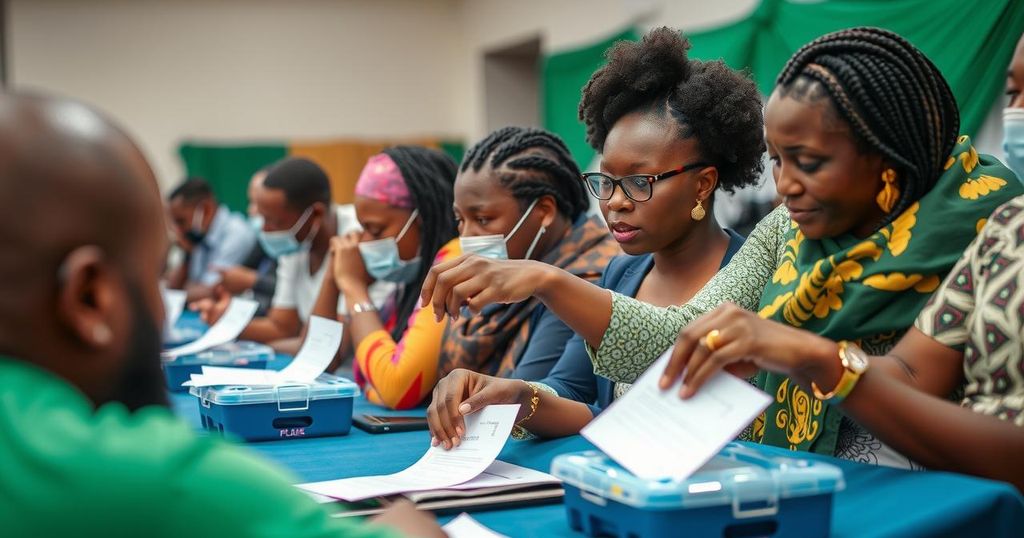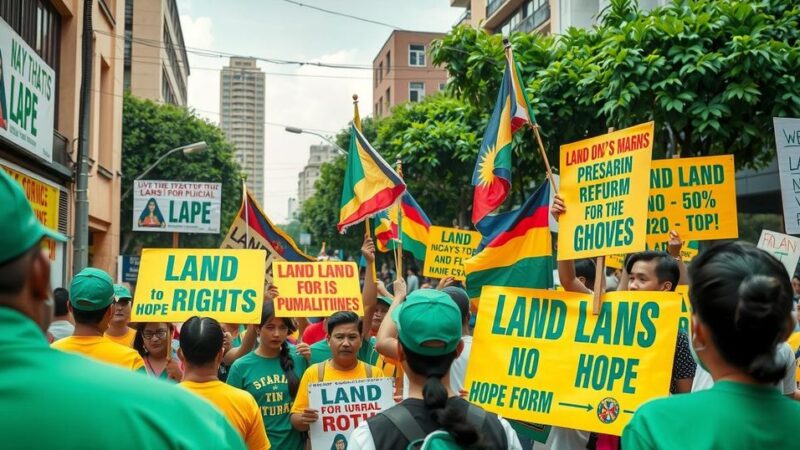Ghana recently conducted crucial presidential and parliamentary elections amid hopes for economic recovery following a severe financial crisis. President Nana Akufo-Addo is stepping down, with the primary contest between Vice President Mahamudu Bawumia and former President John Dramani Mahama. Despite some instances of violence, voting was reported to be peaceful. Preliminary results are expected soon, with a potential official announcement by Tuesday.
Ghana held pivotal presidential and parliamentary elections on Saturday amidst widespread anticipation for an economic revival following a severe financial crisis that led to a significant debt default. President Nana Akufo-Addo, concluding his two-term presidency, will be succeeded by one of twelve candidates, primarily contested between Vice President Mahamudu Bawumia of the New Patriotic Party (NPP) and former President John Dramani Mahama of the National Democratic Congress (NDC).
Polling indicates a possible comeback for Mahama, who served from 2012 to 2016, framing Bawumia as an advocate for the policies that contributed to the country’s economic struggles. Mahama articulated his intention to reform the terms of a $3 billion IMF bailout, emphasizing the need for a recovery strategy that resonates with the people’s needs. After voting in his hometown, he expressed a confident outlook regarding his electoral prospects, suggesting that the election outcomes were already apparent.
Conversely, Bawumia expressed hope for victory as well, citing the government’s efforts toward economic recovery evidenced by a 6.9% growth rate in the second quarter of 2024. He assured voters of his commitment to furthering policies that would bolster this recovery. Reports from election monitors noted that voting proceeded largely without incident, although isolated instances of violence were documented, resulting in one fatality.
As the votes were tallied in the aftermath of polls closing at 1700 GMT, electoral officials anticipated the release of preliminary results throughout Saturday night and Sunday. However, the official presidential results may not be finalized until Tuesday, often allowing for early predictions based on trends observed on the ground. With approximately 18.7 million registered voters out of Ghana’s 34 million residents, the election underscores a critical moment in the nation’s political and economic landscape.
Ghana has been navigating through its worst economic crisis in decades, marked by a debt default that necessitated intervention from the International Monetary Fund (IMF). In this context, the recent elections carry significant implications for the country’s governance and economic policies. President Nana Akufo-Addo’s departure from office and the contest between Mahama and Bawumia reflect a dichotomy between continuity and change in addressing the economic challenges facing Ghana. The outcomes of this election possess the potential to shape Ghana’s fiscal future and socio-political dynamics.
The recent elections in Ghana are a critical juncture following a significant economic downturn, with both leading candidates presenting starkly different visions for the country’s recovery. As voters engaged in the electoral process, the atmosphere was marked by a mixture of hope and tension, indicative of the stakes involved. The forthcoming results will not only determine the next president but also set the course for addressing the ongoing economic challenges that have plagued the nation.
Original Source: www.voanews.com






